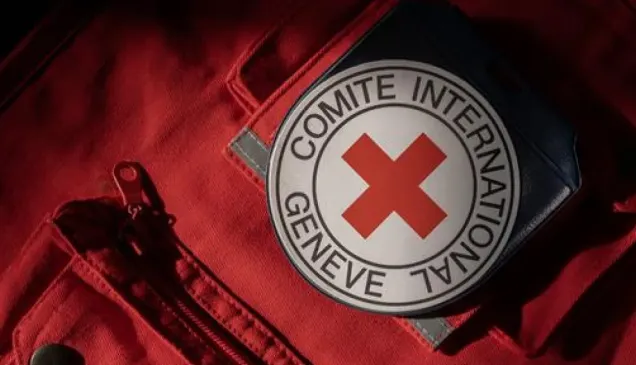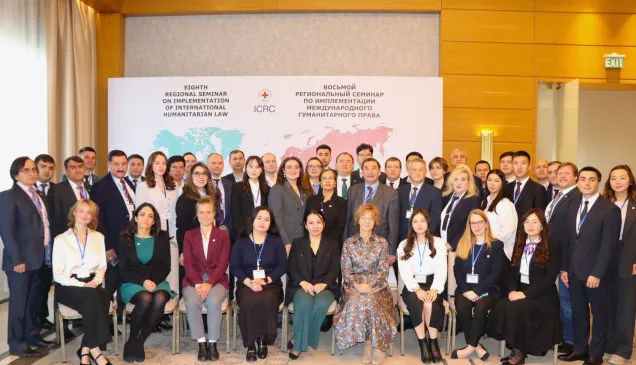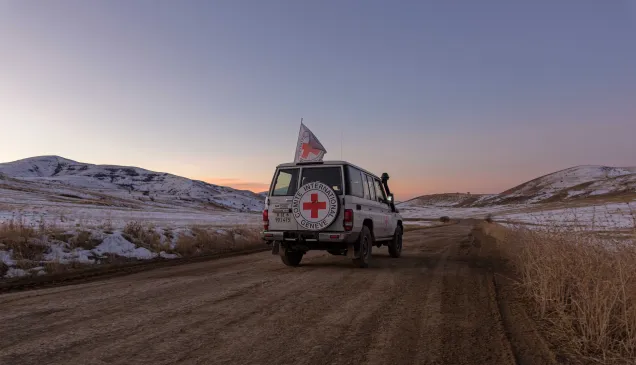Decades of waiting: Supporting families of the missing in Azerbaijan
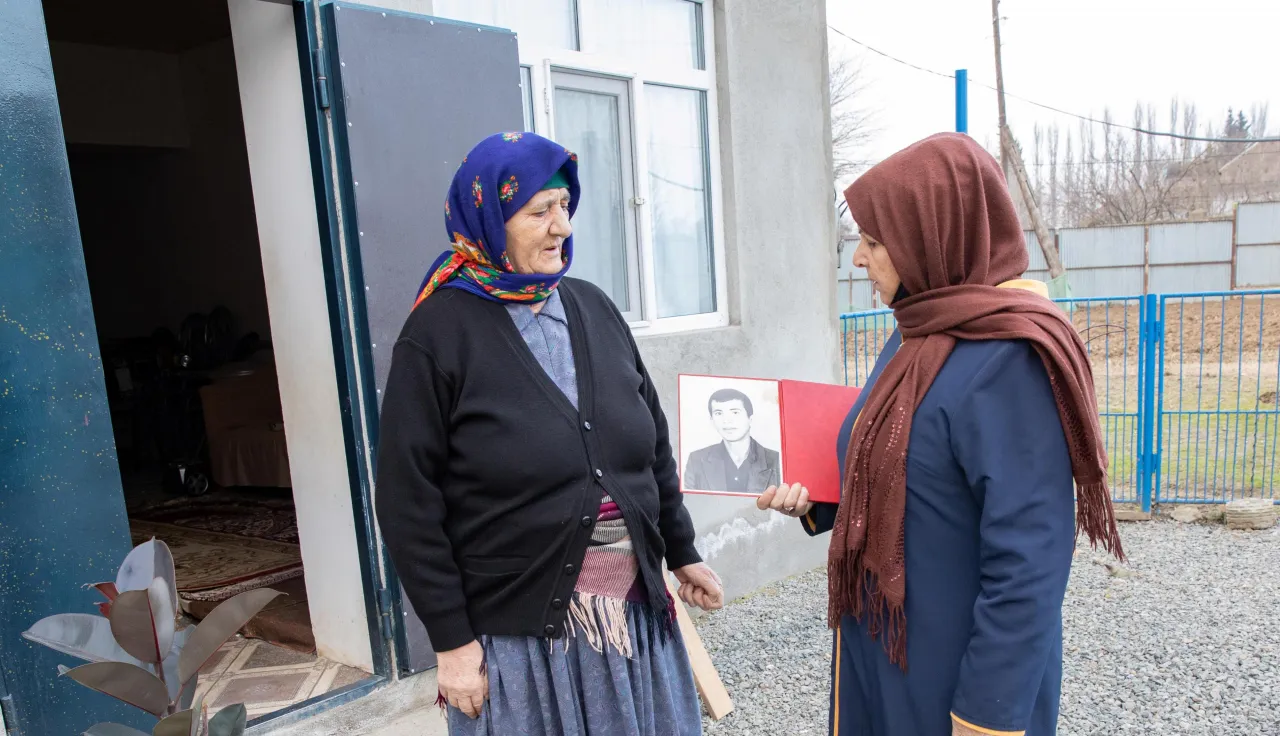
For over 30 years and more, thousands of families across Azerbaijan have wrestled with one question: “where is my loved one?” Since the early 1990s, the International Committee of the Red Cross (ICRC) has been addressing the issue of people who went missing in connection with the Karabakh conflict – working alongside families, supporting national authorities, towards upholding their fundamental right to know. The goal has always been clear: to help clarify the fate of the missing relatives and to support efforts that might one day bring answers to the families.
“I have two children who know I’m their dad. My brother and I never had that privilege.” Nijat Mahmudov, son of a missing person, Karabakh conflict of the 1990s.
Until now, the ICRC in Azerbaijan has submitted eight formal lists of missing persons to the State Commission on Prisoners of War, Hostages and Missing Persons (CEPOD), with approximately 4,000 tracing cases registered through direct contact with families and additional tracing requests opened over time. The ICRC’s Baku delegation has been engaged in this humanitarian mission since 1992. What began as an urgent tracing operation in the aftermath of the Karabakh conflict evolved into a comprehensive, multidisciplinary approach that spans legal, forensic, psychosocial and technical domains. It is a story of sustained commitment, built on neutrality, trust and close cooperation with Azerbaijani institutions and communities.
Tracing the missing: From names to answers
In the early 1990s, as conflict escalated, the ICRC began to register individuals who were unaccounted for.
“They both disappeared, it’s like they never existed. Every approaching car gives me hope that they’ve come back and will knock on the door at any moment. Every passing minute buries that hope.” Simuzar Ibrahimova, mother of two missing persons, Karabakh conflict of the 1990s
These lists – painstakingly compiled from testimonies of family members – formed the foundation of a humanitarian effort that has spanned decades. Since 1995, the ICRC has formally submitted eight lists of missing persons to the Azerbaijani authorities and other parties, including the most recent one in April 2024.
This partnership eventually led to the development of a consolidated, mutually agreed list – a critical step toward ensuring that each missing person is accounted for and that their families’ voices are heard.
Supporting the families: Healing beyond the search
Behind every missing person is a family forced to live with uncertainty.
“I cope with my grief by telling myself it’s better to keep my father in my warm heart than in a cold grave.” Elnara, daughter of a missing person, Karabakh conflict of the 1990s
Many have faced not just emotional trauma, but also economic hardship, legal barriers and social isolation. In the 2000s, the ICRC conducted a nationwide assessment to better understand these complex and lasting needs. What followed was a long-term, community-driven response that reached deeply into the lives of those affected.
From 2012 to 2018, the ICRC implemented an Accompaniment Programme to support families of missing persons with psychosocial care, legal guidance and practical help. Some family members of the missing, accepted to play the role of accompaniers to other families. The accompaniers were then trained to provide emotional support to others, facilitate peer group sessions, connect families with services and organize remembrance events. More than 3,000 home visits were carried out during this period and thousands more found comfort through shared community experiences.
After 2018, while the structured programme was scaled down, the ICRC continued to support the dedicated group of 30 trained accompaniers who remained active in the field. During this transitional phase:
- more than 1,000 families of missing people received home visits and psychosocial or psychological support
- over 50 refresher training and supervision sessions were organized to help accompaniers maintain motivation and strengthen their skills, particularly in supporting families through specific moments such as during identification and commemoration
- the network remained responsive in times of crisis – mobilized during military escalations and the COVID-19 pandemic, when more than 500 vulnerable families received emergency cash assistance and monthly phone support replaced in-person visits.
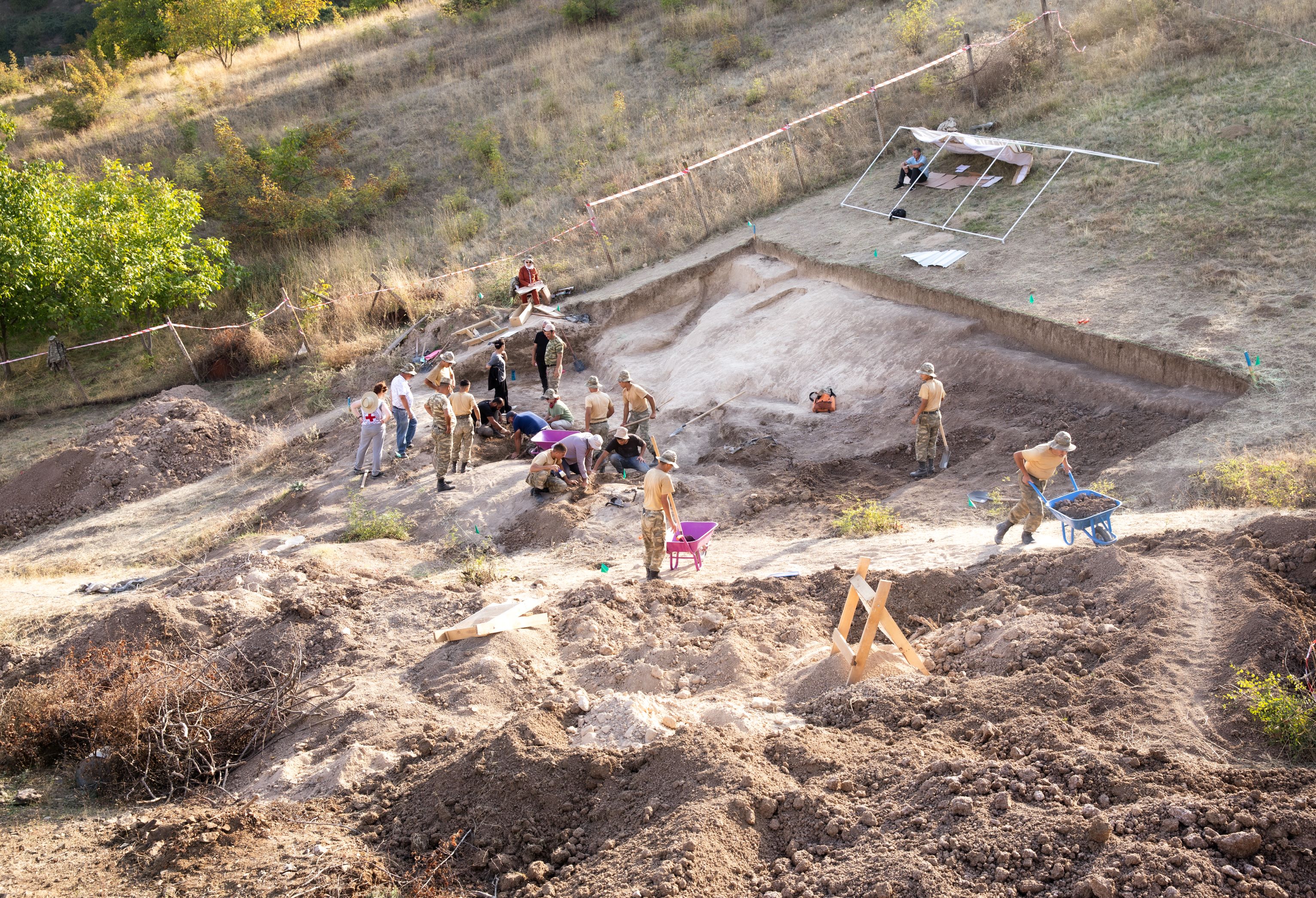
Following the 2020 autumn hostilities, the context changed drastically. Regaining control of the territories of possible gravesites allowed the Azerbaijani authorities to conduct exhumations, search and recovery as well as identifications. Following handover of mortal remains to the families they belong to, created special moments: With each notification, families increasingly turned to accompaniers and the ICRC for support – mainly psychological. In response, additional training sessions were provided to equip accompaniers with tools to guide families through these deeply sensitive processes.
Identifying this new need of families of missing persons, the ICRC launched a new stage of the Accompaniment Programme in June 2022. The thirty accompaniers joined over 10 specialized training workshops, delivered by the ICRC’s teams, focusing on improving their ability to support families during significant moments.
Since the launch of the new stage of accompaniment program, accompaniers have reconnected with over 3,000 families across Azerbaijan, carrying out more than 700 home visits and organizing commemoration events that brought together over 2,000 relatives of the missing. Their work offered not only emotional support but also a powerful affirmation that these families, and their grief, are not forgotten.
The spirit of solidarity extended beyond borders. Families of the missing from Azerbaijan participated in two international conferences along to more than 100 missing relatives, joining the global event from Baku. These participations allowed to share experiences, exchange knowledge and emphasize the universal nature of their journey.
The role of accompaniers remained vital through it all: a bridge between professional support and lived experience, between sorrow and strength, between loss and community.
Forensic work: Laying the groundwork for future identification
Acknowledging the right to know of the families of missing persons, the ICRC focused on supporting the building of the forensic foundation of CEPOD and other concerned actors to help identify human remains.
Between 2008 and 2011, detailed ante-mortem data were collected from families, followed by the mapping of family trees beginning in 2012. In 2014, the ICRC jointly with CEPOD launched a nationwide biological sample collection process. By the end of 2022, over 10,800 biological reference samples had been collected from 3,492 families of missing people and handed over to the local authorities. DNA profiling was performed by the state laboratory, which was created specifically for this.
In parallel, the ICRC provided support to forensic and investigative institutions across the country, donating equipment, conducting 20 specialized training sessions for over 300 professionals and sponsoring study visits abroad to learn best practices in the search and recovery of remains.
Twelve field trips were carried out to exhumation sites, helping support the search/recovery of the human remains of at least 170 individuals. In addition, the ICRC facilitated the transfer of remains of 48 individuals to Armenia as a neutral intermediary.
The road ahead
More than 30 years have passed since the first families approached the ICRC in search of their missing loved ones. While identifications of mortal remains have been ongoing, a large number of FoM are still waiting for news.
Their right to know is more than a principle, it is a humanitarian obligation.
As the situation evolves, so does the nature of humanitarian engagement. The ICRC’s long-standing presence along to the FoM and authorities has helped lay the foundation for continued efforts – built on trust, cooperation and shared commitment.
Upon the request of the Government of Azerbaijan, the ICRC will discontinue its physical presence in the country as of 3 September 2025. Nevertheless, the ICRC remains committed to continuing cooperation with relevant Azerbaijani authorities in support of protected persons and in efforts to clarify the fate of missing people, in accordance with International Humanitarian Law. While our operational presence is coming to a close, the needs of families remain—and so does our dedication to ensuring that each missing person is remembered, and every family's search for answers continues with dignity and support with resolution.

